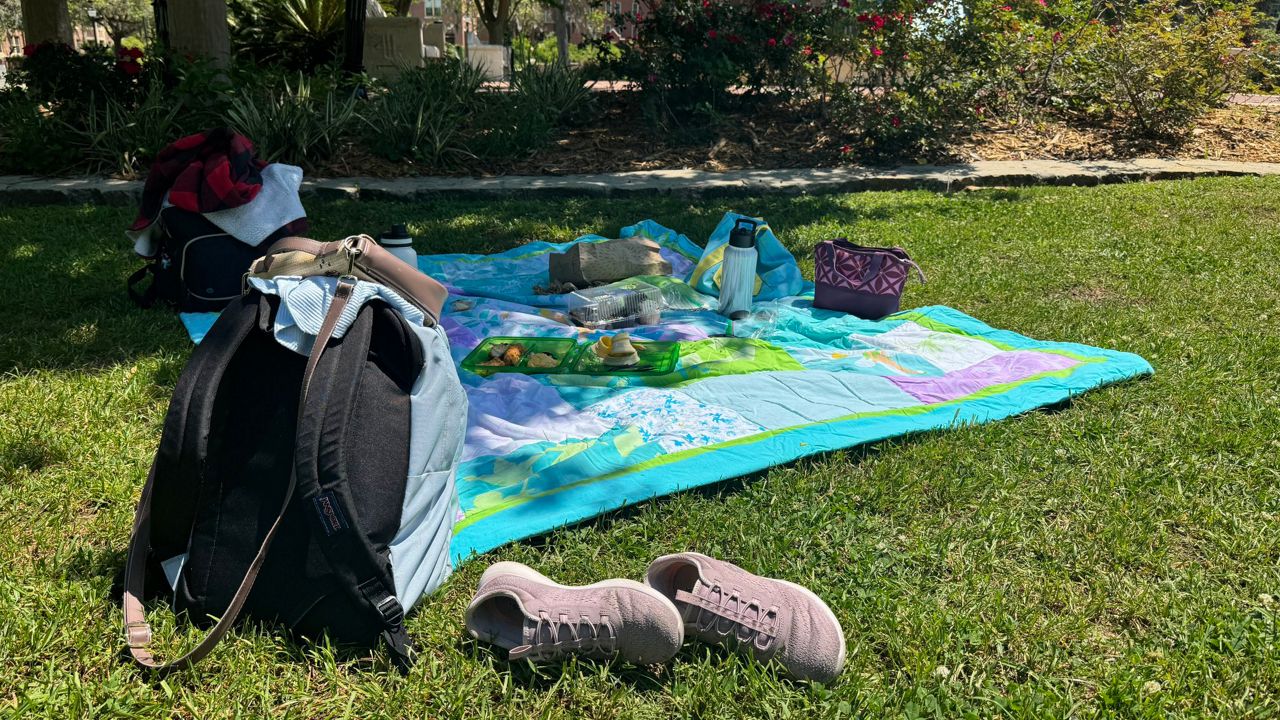WASHINGTON — Recalls of dangerous products are often in the news. What’s not well known is that the manufacturer, and not the government, determines when a recall is issued.
What You Need To Know
- Experts say government agencies may know about unsafe products, but are legally barred from telling the public
- A report from the U.S. Public Interest Research Group Education Fund says it is often too late by the time federal agencies are able to warn consumers about a dangerous product
- A group of Democrats in the U.S. House and the Senate are working to pass legislation that would change that
- The Sunshine in Product Safety Act would allow the federal government to reveal negative information about a product without the manufacturer's permission
There is an effort now in Congress to change that.
“Most consumers are unaware that an agency can know about an unsafe product, but they can’t tell you,” said Hannah Rhodes, a consumer watchdog with The Public Interest Network.
“Right now, it can take months or years for the public to be warned about dangerous products because federal laws favor corporations, not consumers,” Rhodes told Spectrum News.
Rhodes authored a recent report through the U.S. Public Interest Research Group Education Fund, which found that once the Consumer Protection Safety Commission is able to notify consumers of a dangerous product, it’s often too late.
"One of our most jolting finds was of the 23 deaths reported in 2021. At least 19 of them occurred in previous years," she said. "Likewise, of the more than 6,000 injuries, those occurred in previous years too."
A statute in the Consumer Product Safety Act requires the Consumer Product Safety Commission to receive approval from manufacturers before releasing any information about a specific product. The commission must give the manufacturer time to investigate, object or even delay information being released.
Erika Richter’s daughter Emma was just two weeks old when she died while in a Fisher-Price Rock ‘N Play Sleeper in 2018.
“Emma’s dad found her unresponsive in a Fisher Price Rock ‘N Play Sleeper," the Oregon mom told Spectrum News. "The hell that I was stuck in, the grief that I was stuck in, it’s unlike anything I can put into words."
The inclined sleeper went on sale in 2009, and roughly 4.7 million units were sold before the company recalled it in 2019, about eight months after Emma’s death.

According to a congressional report, by 2012 Fisher Price and the federal government had reports of babies who stopped breathing while in the sleeper. By 2021, Fisher Price said it had received a total of 97 reports of infant deaths linked to the sleeper — some of those deaths were reported after the recall.
“When I saw the news on the TV, I just instantly dropped to my knees," Richter said. "There was just this overwhelm of emotion, just thinking about the impact, it breaks my heart.
"If I had known, I would still have my daughter. The agencies that are responsible for protecting us are failing, and Congress needs to step up."
A group of Democrats in the U.S. House and the Senate introduced the Sunshine in Product Safety Act last year, which would allow the CPSC to reveal negative information about a product without the manufacturer’s permission.
“We, as consumers, do our best to find out if we are jeopardizing the safety of our kids or not," said Rep. Jan Schakowsky, an Illinois Democrat sponsoring the bill in the House. "Yet, consumers cannot be aware if they are not provided the information.”
Schakowsky, who heads the House Consumer Protection Subcommittee, is trying to get bipartisan support for the proposal but said lawyers and lobbyists are opposing her bill. She said she’s trying to get Republican colleagues on board, with the goal of passing the legislation before the midterm elections.
“This is one of those issues that should be completely non-partisan, bipartisan and not involved in politics, because we are talking about safety,” Schakowsky said.
Richter said updating the law would protect more Americans from hazardous products, so no parent would have to experience her nightmare.
“Think about the joy of your newborn being ripped away from you — think about what you can do to prevent that for yourself and someone else,” she said. “There’s not a day that goes by that I don’t think about her."
Officials with the CPSC could not further comment on why it took so long for Fisher-Price to recall the Rock ’N play, citing the provisions in the Consumer Product Safety Act that limit their ability to elaborate.
“Both as a result of statutory restrictions, and in the interest of delivering recall remedies to consumers as quickly as possible, the CPSC works with firms to encourage voluntary recalls when their products have been determined to contain a defect which could create a substantial product hazard or create an unreasonable risk of serious injury or death,” said CPSC spokesman Jason Levine in a statement.









